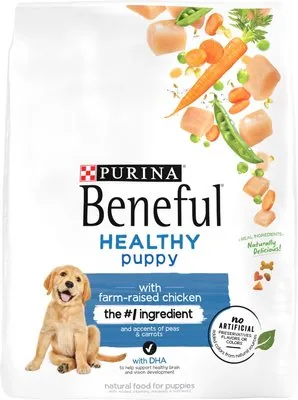Australian Shepherds are a remarkably loyal and energetic working breed, known for their intelligence and persistence. These medium-sized dogs thrive in active environments and are often referred to as ranch or cattle dogs due to their history. To support their vibrant lifestyle and maintain their overall health, providing the Best Dog Food For Australian Shepherds is paramount. A well-balanced diet, combined with regular exercise and consistent training, is crucial for your Aussie’s well-being throughout every stage of their life.
Understanding Your Australian Shepherd’s Nutritional Needs
Ensuring your Australian Shepherd receives optimal nutrition is key to their long-term health and happiness. Their diet must support their high energy levels, muscle development, and overall bodily functions.
Breed Overview and Activity Level
Australian Shepherds typically weigh between 42 to 53 pounds for females and 51 to 64 pounds for males, requiring approximately 45 to 75 minutes of exercise daily. They are not dogs content to lounge on a couch; they need a “job” or focused activity to keep their keen minds and bodies engaged. This high level of activity necessitates a diet rich in quality protein and appropriate fats to fuel their adventures and maintain lean muscle mass. Without proper nutrition, even the most active Aussie can suffer from health issues.
Key Health Considerations: Dysplasia and Diet
While generally a healthy breed, Australian Shepherds can be prone to certain genetic conditions, including hip and elbow dysplasia. Dysplasia occurs when the bones do not fit correctly in their sockets, leading to potential arthritis and significant pain. Early evaluation and proactive dietary management can help mitigate the severity of this condition.
To support joint health and overall well-being, look for dog foods that contain specific ingredients known for their anti-inflammatory and joint-protective properties. These include:
- Antioxidants: Help combat cellular damage.
- Chondroitin: A natural compound found in cartilage, aids in joint repair.
- Glucosamine: Supports cartilage health and flexibility.
- Green Mussel: A source of Omega-3 fatty acids and joint-supporting compounds.
- Methylsulfonylmethane (MSM): An organic sulfur compound known for its anti-inflammatory properties.
- Omega-3 from Fish Oil: Powerful anti-inflammatory agents that support joint, skin, and coat health.
- Taurine: Important for cardiovascular health.
- Turmeric: A natural anti-inflammatory.
- Vitamin E: An antioxidant that supports immune function.
Incorporating these nutrients can significantly contribute to managing and preventing joint issues, allowing your Australian Shepherd to remain active and comfortable for years to come. It’s also important to be aware of what foods can’t dogs eat list to prevent accidental ingestion of harmful substances that could compromise their health.
Fresh Food Diets for Australian Shepherds: Are They Worth It?
The trend of fresh dog food diets has grown considerably, with many Australian Shepherd parents exploring this option for its perceived health benefits. However, the effectiveness of fresh food largely depends on its balance and nutritional completeness.
Only if they’re properly balanced.
While preparing meals at home with good intentions, many owners inadvertently create nutritionally incomplete diets. Dogs require a precise balance of proteins, fats, carbohydrates, vitamins, and minerals. If these homemade meals are not correctly portioned and balanced by veterinary nutritionists, the potential health benefits can be lost.
Recently, several companies have emerged that specialize in delivering pre-prepped fresh meals customized to your dog’s specific needs, including size, age, and activity level. Brands such as Farmer’s Dog, Ollie, and Nom Nom have been approved by nutrition teams for providing truly high-quality and well-balanced diets. While these options can be more expensive than traditional kibble (often 3-4 times more per day), many pet parents find the added health benefits, such as improved digestion and immune health, to be well worth the investment. New customer discounts are often available for those wishing to try them out.
 Logo for The Farmer's Dog fresh pet food delivery service
Logo for The Farmer's Dog fresh pet food delivery service
Pros and Cons of Fresh Food Diets
- ✓ Diets balanced by Nutritionists: Ensures all essential nutrients are provided in correct ratios.
- ✓ Customized portions for weight control: Helps prevent overfeeding and maintain an ideal weight, crucial for joint health.
- ✓ Superior digestive and immune health: Fresh ingredients are often easier to digest and can boost overall immunity.
- ✕ More expensive than standard dog food: The primary drawback for many pet owners.
When considering fresh food, always prioritize nutritionist-formulated options to ensure your Australian Shepherd receives all the necessary nutrients without any deficiencies or excesses. Understanding what dogs can’t eat list is also critical when supplementing any diet, whether fresh or kibble.
Best Dog Food for Australian Shepherd Puppies
The puppy stage is a period of rapid growth and development for Australian Shepherds, demanding specialized nutrition to support their energetic bodies and developing systems.
How long do Australian Shepherds need puppy food?
Australian Shepherds typically need puppy-specific food until they are about 12 to 16 months old. During this intense growth phase, puppies require higher amounts of essential nutrients compared to adult dogs. This includes elevated levels of proteins, fats, carbohydrates, vitamins, and minerals. Hydration is also incredibly important, so always ensure fresh water is available.
It’s vital to avoid overfeeding puppies, as this can lead to rapid growth that puts undue stress on developing joints and can contribute to obesity later in life. Portion control is essential, and treats should not exceed 10% of their daily caloric intake. Feeding a high-quality, reputable brand specifically formulated for puppies ensures they receive the balanced nutrition necessary for healthy development. Avoid feeding fruits not to give dogs to puppies, as their digestive systems are more sensitive.
Here are some recommended brands for Australian Shepherd puppies:
- Purina Beneful Healthy Puppy with Farm-Raised Chicken Dry Dog Food: A well-known brand offering a balanced diet for growing puppies.
- Blue Buffalo Freedom Puppy Chicken Recipe Grain-Free Dry Dog Food: A grain-free option for puppies with sensitivities, focusing on chicken and potatoes.
- Iams ProActive Health Smart Puppy Original Dry Dog Food: Designed to support healthy brain development and overall puppy growth.
- Blue Buffalo Wilderness Rocky Mountain Grain Free Natural Red Meat High Protein Recipe Puppy Dry Dog Food: A high-protein, grain-free option for active puppies.
 Bag of Purina Beneful Healthy Puppy with Farm-Raised Chicken Dry Dog Food
Bag of Purina Beneful Healthy Puppy with Farm-Raised Chicken Dry Dog Food
Selecting the right puppy food lays the foundation for a healthy adulthood. Always consult with your veterinarian to tailor the best nutritional plan for your growing Australian Shepherd.
Top Dog Food Choices for Adult Australian Shepherds
Once your Australian Shepherd reaches approximately 90% of their expected adult weight, typically between 12 to 16 months of age, it’s time to transition them to an adult dog food formula. This transition marks a shift in nutritional goals, focusing on balance and maintenance.
When should Australian Shepherds start transitioning to adult food?
The period between 12 to 16 months is ideal for switching to adult food. At this stage, their rapid growth has slowed, and their nutritional needs change from intense development to maintaining a healthy adult body. The primary goals for an adult Australian Shepherd’s diet are:
- Balance: An adult dog’s body is responsible for numerous vital functions, including digestion, immune response, muscle strength, and cognitive function. A balanced diet ensures that all these systems receive their appropriate share of nutrients, preventing deficiencies that could impact health.
- Maintenance: Maintaining a healthy weight is critical. Underfed dogs risk malnourishment, while overfed dogs can become obese. Both conditions can lead to serious health problems for an Australian Shepherd, particularly exacerbating joint issues like dysplasia. Portion control and regular monitoring of body condition are essential. It’s also wise to educate yourself on what fruits and veggies can dogs not eat to ensure you’re not inadvertently harming your pet with human foods.
Here are some recommended adult dog food options:
- Hill’s Science Diet Adult Chicken & Barley Recipe Dry Dog Food: A popular choice for balanced adult nutrition.
- Solid Gold MMillennia Beef & Brown Rice Recipe with Peas Adult Dry Dog Food: Offers a natural, holistic approach with unique protein sources.
- BLUE Wilderness® Duck Recipe Grain-Free Dry Dog Food: A grain-free option with high-quality protein for active adult dogs.
- Purina ONE Natural Adult Chicken & Rice Formula Dry Dog Food: Provides a blend of protein-rich kibble and tender, meaty morsels.
Choosing the right adult food ensures your Australian Shepherd receives consistent, comprehensive nutrition to support their active lifestyle and maintain optimal health throughout their prime years.
Tailoring Diet for Senior Australian Shepherds
As Australian Shepherds transition into their senior years, typically around 7 to 8 years old for medium-sized breeds, their nutritional needs will once again evolve. Just like humans, dogs experience metabolic changes as they age, often requiring adjustments to their diet to support their changing bodies.
When should Australian Shepherds start transitioning to senior food?
While individual aging rates vary, medium dogs like Australian Shepherds can generally start benefiting from a senior-specific diet around 7 to 8 years of age. During this period, their metabolic processes tend to slow down, meaning they often require fewer calories than they did in their younger, more active years.
Smart dog food companies formulate senior diets with these changes in mind, typically reducing calorie density while maintaining adequate protein levels to help seniors feel full and support muscle mass. However, it’s crucial to remember that every dog is unique. Some older dogs may require the same or even more calories, depending on their individual health, activity level, and body condition. Close monitoring of their weight and overall body condition is essential.
Senior dog foods often include added ingredients to support common age-related concerns, such as joint supplements (glucosamine, chondroitin), increased fiber for digestion, and antioxidants for cognitive health.
Here are some recommended senior dog food options:
- Purina Pro Plan Bright Mind Adult 7+ Chicken & Rice Formula Dry Dog Food: Formulated to support cognitive health in aging dogs.
- CANIDAE Grain-Free PURE Senior Real Chicken, Sweet Potato & Garbanzo Bean Recipe Dry Dog Food: A limited-ingredient, grain-free option for sensitive seniors.
- Blue Buffalo Basics Limited Ingredient Diet Turkey & Potato Recipe Senior Dry Dog Food: Designed for seniors with food sensitivities.
- Chicken Soup for the Soul Mature Chicken, Turkey & Brown Rice Recipe Dry Dog Food: Focuses on natural ingredients for aging dogs.
 Bag of Purina Pro Plan Bright Mind Adult 7+ Chicken & Rice Formula Dry Dog Food
Bag of Purina Pro Plan Bright Mind Adult 7+ Chicken & Rice Formula Dry Dog Food
By providing a diet specifically formulated for senior Australian Shepherds, you can help maintain their mobility, support cognitive function, and ensure a high quality of life as they enjoy their golden years. Always consult your veterinarian for personalized dietary advice tailored to your senior dog’s specific health needs.
Conclusion
Choosing the best dog food for Australian Shepherds is a dynamic process that evolves with their life stages, from energetic puppyhood to active adulthood and graceful seniority. A balanced and appropriate diet is the cornerstone of their health, directly impacting their energy levels, joint health, immune system, and overall longevity. By understanding their unique breed characteristics and specific nutritional requirements at each stage, you can provide the optimal sustenance they need to thrive. Regularly monitor your Australian Shepherd’s body condition and consult with your veterinarian to make informed dietary choices that support their lifelong wellness. For more insights into dog nutrition and care, explore other articles on Dog Care Story!
Affiliate Disclosure:
We do not accept money to recommend pet foods. However, we do receive referral fees from online retailers (such as Chewy or Amazon) on qualifying purchases. Our recommendations are neutral, and diet recommendations are made without considering whether we will receive a referral fee.
